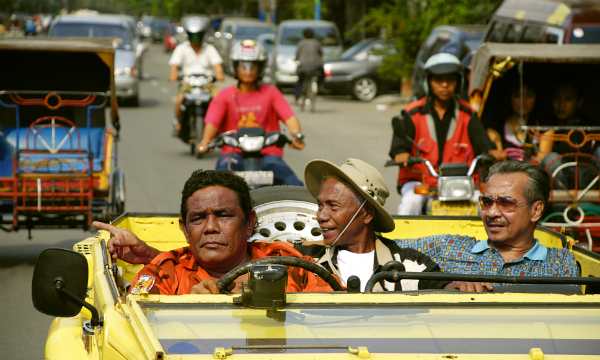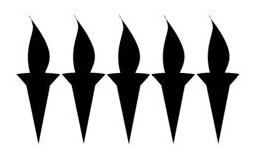
In September 1965 an abortive coup d’etat in Indonesia resulted in bloody retribution and the deaths of approximately 1 million people, the majority of whom were assassinated for alleged links to Communism. In charge of these killing squads were small time crooks of the likes of Anwar Congo , a happy go lucky gangster who remains proud of what he did and who enjoys minor celebrity status to this day.
Joshua Oppenheimer’s compelling documentary tasks Congo and his affiliates with revisiting the reality of their past by recreating the nature of their executions through the medium of film. It’s a brave approach that proves hugely effective in forcing Congo et al to reassess the extent of the blood that they have on their hands.
Initially adamant that they played a significant and positive role in the history of their country, Congo and his cronies savour the opportunity to show the world how they massacred thousands, starkly demonstrating their methods and revisiting the scenes of slaughter.
It’s all scarily matter of fact, but when the context of the present day politics of Indonesia is considered, it’s unsurprising that this attitude prevails. This is a country that evidently embraces fear to govern, that is scared of progress and change and that is rife with corruption or the culture of ‘relax and Rolex’ as Yapto Soerjosoemarno, leader of the Pancasila Youth [a 3 million strong paramilitary organisation supporting the government] so neatly puts it.
It’s no wonder that Congo continues to embrace the role of gangster, a part that has come to define his very being. Perhaps predictably then, Congo’s crew opt for film noir as the favoured genre for the majority of the recreations, playing out their surreal fantasies that are wholly based in a dreadful reality.
And herein lies the real craft of Oppenheimer’s picture. Throughout, Oppenheimer is a mere observer, reserving judgement and effectively letting Congo and his cohorts condemn themselves.
At the outset, Congo is a flippant gangster, utterly convinced in himself. By the film’s conclusion, he resembles a shell of a man, reduced to what he really is; an old man with a terrible past, damned as he is by his own hand. The Act of Killing is a provocative, powerful and emotive journey that shatters any pervading illusions about the severity of what occurred in Indonesia in 1965, but does so in such a unique manner that what transpires is infinitely more impactful,insightful and ultimately profound.
Alex has awarded The Act of Killing five Torches of Truth


















